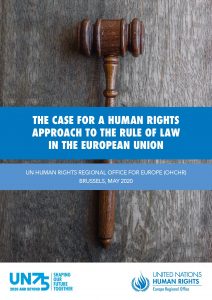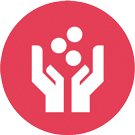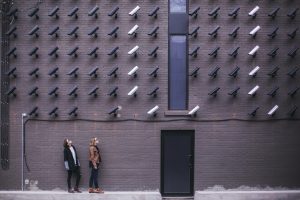
June 2020
Ariadne’s Thread is a monthly update of events, briefings and research for social change and human rights funders.
Ariadne News & Events
SURVEY: INPUT TO DESIGN ARIADNE’S TECHNOLOGY PROGRAMME: This survey marks the kick-off of a new Ariadne initiative focused on digital power. We have all seen as the rapid pace of technological change has hit the human rights movement head on. We see states adopting new tools of surveillance and oppression; we see our public sphere increasingly dominated by unaccountable corporate power; we see innovative uses of technology to support solidarity and organising; and we see advances in technology enabling operations and collaboration. This wave of possibility and upheaval of social and political worlds is a big challenge for grantmakers. Ariadne wants to better understand the network’s perspective and needs so that we can: provide support to network members to add value to important conversations about technology and build individual member’s skills; and enable more coordinative action of the network so that our collective power and engagement on our particular issue areas can have a bigger effect on the global conversation about human rights and technology. The deadline for filling in the survey is 22nd June 2020. Questions? Email maya.richman@ariadne-network.eu.
ONLINE EVENT: CLIMATE CHANGE AND FORCED MIGRATION WITH ARIADNE & UNHCR: You are invited to join this online event on Tuesday 25th June, 13.00-17.45 CEST, co-hosted by Ariadne and UNHCR, on climate change and forced migration. Key issues to be discussed include: How does climate change, often combined with conflict, drive people from their homes? How can foundations support relevant and innovative programmes to deal with the aftermath of these events? What about anticipatory action, prevention, adaptation and mitigation? How can they help build resilience in the long-term so people can stay and/or return? Linking these debates with the broader European and international policy agendas, the event will also look at how foundations can also support civil society advocacy on this topic to improve both policies and practices. Please register by 19th June.
WEBINAR: COVID-19 AND STRUCTURAL DISCRIMINATION IN EUROPE: Join this webinar on Tuesday 23rd June, 15:00 BST to learn more about the unfolding evidence of structural discrimination revealed by the COVID-19 crisis across Europe, the meaningful intersections funders should consider in responding to it, which promising approaches are emerging, and how could they be consolidated. Moderator: Beth Fernandez of Sigrid Rausing Trust. Speakers: Marek Szilvási of Open Society Foundations; Claudia Bollwinkel of Dreilinden; and Farzana Khan of Thirty Percy Foundation. To register, please click here.
NEW BLOG: PHILANTHROPY’S BIG CLIMATE PROBLEM: In this blog, Ariadne member Priya Krishnamoorthy draws comparisons between the climate crisis and COVID-19 as intersectional issues which hit the most vulnerable hardest and require grassroots responses. This blog is the fourth in a series which marks the release of the 2020 Ariadne Forecast, and looks at the challenges and opportunities identified by funders through the lens of the current pandemic. See also, ‘COVID-19 stoking the flame of racism and xenophobia’ from Katie Lau.
DID YOU MISS A WEBINAR? WE RECORDED IT! If you missed one of our great webinars, don’t worry! We record all of them, and Ariadne members can access them right here.
REGISTER NOW – ARIADNE PORTAL TUITION: A half-hour of tuition to improve your skill in using the Ariadne Portal will be held on Tuesday 21st July at 14:00 BST. This is an online webinar you can participate in from your desk. To join, you will need a computer or tablet (iPad/Android) to watch the online demonstration. To register, please click here. For additional portal tuition dates, please click here.
*To register for Ariadne events, your institution must be a member organisation of Ariadne. For questions regarding your membership status, please contact Hannah Stevens.
New Research, Articles and Judgements
 The case for a human rights approach to the rule of law in the European Union: This report from the United Nations Human Rights Regional Office for Europe makes suggestions for optimising the EU’s new rule of law initiative, drawing on the experience of the international human rights machinery.
The case for a human rights approach to the rule of law in the European Union: This report from the United Nations Human Rights Regional Office for Europe makes suggestions for optimising the EU’s new rule of law initiative, drawing on the experience of the international human rights machinery.
Climate Justice & Racial Justice: Earth Rights International have put together a list of resources that highlight the intersections between climate justice and racial justice and why racial justice is critical to climate justice. See also, ‘Covid-19 and environmental racism.’
Three Takeaways on the Protests for Racial Equality: Protests have engulfed the United States since the murder of George Floyd. As the global movement for racial equality unfolds, the coronavirus has and will shape its trajectory. In this article for Carnegie Endowment for International Peace, Ashley Quarcoo shares three takeaways. See also, ‘France gives a little over George Floyd.’
Leaving no-one behind: This report from anti-slavery provides guidance for policymakers, donors and business leaders to ensure that responses to Covid-19 reach victims of modern slavery and people vulnerable to slavery. See also, accompanying blog, ‘The response to Covid-19 is an opportunity to redesign a world free from slavery.’
State of Civil Society Report 2020: The annual State of Civil Society Report analyses key events and trends impacting civil society, and civil society responses to the major challenges of the day. The ninth edition of the report focuses on the main trends from 2019. This report is about, from and for civil society, drawing on 50 interviews with civil society activists, leaders and experts, as well as CIVICUS’s ongoing research, analysis and advocacy programmes. See also, ‘Advocacy in Restricted Spaces: A Toolkit for Civil Society Organisations.’
A window of opportunity: Programming with and for very young adolescent girls: A new EMpower report highlights the importance of focusing on very young adolescent girls (ages 10-14) both in programming and funding. It reviews current programming focused on very young adolescent girls, taking evidence and best practices from grassroots organisations and girls’ perspectives. Key findings and recommendations point to the importance of greater strategic funding and programmatic emphasis on working with and for this age group. EMpower recognises the need for age-differentiated programming; very young adolescent girls are often overlooked, missing the opportunity unique to this critical phase of development.
Blogs and Other Sites of Interest
ARTICLE: What to do if you can’t protest on the streets for Black Lives Matter: Not everyone in the black community can physically gather, march or protest. But other forms of activism and self-care, especially during the coronavirus pandemic which has disproportionately affected black lives, are just as valid. This gal-dem article makes some suggestions.
BLOG: Ways to be in action against anti-Black racism: This blog offers some suggestions for how you can take action individually or as an organisation to help end systemic racism.
GAME: Choose your own fake news: Play “Choose Your Own Fake News,” a web-based game exploring how disinformation spreads across East Africa. The premise: disinformation is a chronic problem everywhere, intersecting with everything from employment to public health to real-world violence. This interactive game is created by Pollicy, a Mozilla Creative Media Awards winner.
OPEN LETTER: CSOs Open Letter to European and national leaders: You are invited to sign this open letter calling on the EU not to reduce the allocation for civil society in the draft 2021-2027 budget. The budget currently proposes a cut to the Rights and Values Program of about 20%.
ONLINE SIMULATOR: En-ROADS interactive climate policy tool: If you’re interested in the potential impacts of different climate policies, you might want to play with this online simulator from En-ROADS, which models how different interventions would impact overall global warming. You can also watch this YouTube video with the designers explaining how to use it and things to keep in mind when making different policy adjustments. It demonstrates there are no simple answers but gives an indication of what measures could have a bigger impact.
VIDEO: Why journalists are being attacked during Coronavirus: What are the global consequences of censoring journalists during a pandemic – and what danger does this pose to civil liberties? Watch this video in which Thomson Reuters Foundation CEO Antonio Zappulla and Joel Simon, the Executive Director of the Committee to Protect Journalists discuss the impact government response to COVID-19 is having on the press’ ability to report freely.
Do you have a great blog post, case study or podcast you’d like to contribute? We would love to feature it. Email Hannah Stevens at hannah.stevens@ariadne-network.eu.
 Beyond Words: Power & Trust in UK Grant Making: The Grant Givers’ Movement is a non-hierarchical gathering of those working in the grant giving sector in the UK. It’s a learning space for those who feel passionate about making positive change in and through the sector, to do so with collective power behind them. GGM conducts research and uses this evidence to engage in advocacy with those in the sector, to encourage good practice and hold grant makers to account. Together, they seek to challenge the status-quo on how philanthropy is practiced. The GGM’s new report is based on a survey of 140 sector professionals in the UK philanthropy space, providing unique and honest insights into how those working in the sector perceive power in relationships with grantee partners, the communities they seek to serve and within foundations themselves. The research was conducted in an anonymous way, enabling very honest reflections about funders concerns about redistribution of power to communities to lead change.
Beyond Words: Power & Trust in UK Grant Making: The Grant Givers’ Movement is a non-hierarchical gathering of those working in the grant giving sector in the UK. It’s a learning space for those who feel passionate about making positive change in and through the sector, to do so with collective power behind them. GGM conducts research and uses this evidence to engage in advocacy with those in the sector, to encourage good practice and hold grant makers to account. Together, they seek to challenge the status-quo on how philanthropy is practiced. The GGM’s new report is based on a survey of 140 sector professionals in the UK philanthropy space, providing unique and honest insights into how those working in the sector perceive power in relationships with grantee partners, the communities they seek to serve and within foundations themselves. The research was conducted in an anonymous way, enabling very honest reflections about funders concerns about redistribution of power to communities to lead change.
In unprecedented crisis, funders aren’t reaching BAME communities: We are three months into the most challenging situation to ever face philanthropy and the not for profit sector in the UK, and yet astonishingly very few funds seem to have actually reached BAME communities – the most disproportionally affected by COVID-19. Fozia Irfan writes this blog for Alliance Magazine.
The Struggle to Overcome Racism: The killing of George Floyd by Minneapolis police officers has ignited protests and focused the national discourse on institutional racism and how to eradicate it. SSIR‘s editors have assembled a list of resources to help leaders of social change and activists trying to put an end to this intractable American scourge.
Citizen Lobbyist: Why civil society matters in a post Covid-19 world: Civil society has played a small role, but a role nonetheless, in the management of the biggest crisis of the century. How might civil society regain a voice in shaping the post-COVID world? In this podcast, Professor Alberto Alemanno and Fiorella Lavorgna discuss with Julie Brome from Ariadne and NGO representatives from BirdLife and ILGA, how NGOs and philanthropies reacted to the pandemic and how they can work together in the reconstruction phase.
From silos to solidarity: Can grantmaking be part of movement-building? Without social movements, much of the change we hope to see in the world will be impossible. Social movements shift narratives, develop new understandings of the world, and build the demand for action. History shows that research and evidence alone do not change hearts and minds, nor put pressure on those in power to act. In this blog for Alliance Magazine, the Participatory Grantmaking Collective argues that we need a groundswell of popular support to move from ideas to impact.
Fighting COVID-19 Digital Rights Violations: On 8th June 2020, DFF launched its COVID-19 Litigation Fund, which supports rapid response strategic litigation that challenges digital rights violations committed in the context of the COVID-19 pandemic. Digital Freedom Fund’s Thomas Vink introduces the fund in this blog.
The next Thread will go out on Thursday 23rd July. We would love to hear from you! Please contact Hannah Stevens by 21st July if you would like to share announcements, events, or resources for the next issue.
Jobs and Tenders
 Chief Executive Officer: The Robertson Trust: The Robertson Trust is the largest independent grant-making trust in Scotland with the vision of a fair and compassionate Scotland where everyone is valued and able to flourish. It is currently finalising a new strategy to address some of the most intractable social issues in Scotland, which will see it adopt new ways of working and building new partnerships to deliver greater impact in Scotland. The Trust is looking for a strong, inspiring and empowering leader who is ambitious about maximising the Trust’s undoubted potential. This is an exciting time for a new Chief Executive to deliver this new strategy. Location: Glasgow, Scotland. Deadline for applications is 22nd June.
Chief Executive Officer: The Robertson Trust: The Robertson Trust is the largest independent grant-making trust in Scotland with the vision of a fair and compassionate Scotland where everyone is valued and able to flourish. It is currently finalising a new strategy to address some of the most intractable social issues in Scotland, which will see it adopt new ways of working and building new partnerships to deliver greater impact in Scotland. The Trust is looking for a strong, inspiring and empowering leader who is ambitious about maximising the Trust’s undoubted potential. This is an exciting time for a new Chief Executive to deliver this new strategy. Location: Glasgow, Scotland. Deadline for applications is 22nd June.
Programme Manager – European Artificial Intelligence Fund: The European Artificial Intelligence Fund is looking for a Programme Manager to coordinate grant making and management of the Fund. The successful candidate will cultivate, support, and track a cohort of high-impact investments from the funding coalition. They will have experience in grant making in the digital, human rights or civil society fields and demonstrate strong diplomacy. They will empower the organisations they work with to recognise, design, and implement projects that address issues at the intersection of technology and society. Location: Europe, preferably Brussels. Deadline for applications is 31st July.
Investment Associate, Economic Justice Program – Open Society Foundations: OSF’s Economic Justice Program seeks to increase economic opportunity for the marginalised in ways that promote inclusive, open, and prosperous societies. OSF is seeking an Investment Associate to support its capital deployment activities, participate in all aspects of the investment process including landscaping target countries/themes/industries, deal sourcing, origination, due diligence, underwriting of equity and debt investments, evaluating the business environment in target countries, assisting in portfolio monitoring efforts, and preparing presentations for internal and external parties. Location: London, United Kingdom. Deadline for applications is 8th July.
Evaluation Manager – National Lottery Community Fund: National Lottery Community Foundation is hiring an Evaluation Manager. This post is in the Evaluation Team, which has an important role in generating evidence for the Fund and the sector about what makes a difference in supporting people and communities to thrive. During this exceptional time, this includes understanding what has been helping organisations quickly adapt their services, as well as evidence to inform community recovery. The successful candidate will be responsible for providing advice on some large, complex evaluations of strategic funding programmes, as well as giving practical guidance to colleagues in the organisation about different ways that good evidence can be generated and used. They will also be proactive in making evidence accessible and meaningful as part of the Fund’s evidence strategy. Location: Glasgow, Scotland. Deadline for applications is 23rd June.
Deputy Head – Justice Together Initiative: The Justice Together Initiative will launch in summer 2020 aiming to ensure that people who use the UK immigration system can access justice and thrive. The Initiative will invest in quality, free legal advice and national policy advocacy to support the lawful and fair functioning of immigration, nationality and asylum processes. The role of Deputy Head offers the opportunity to work with colleagues to develop a brand-new programme to meet an urgent and changing need. The post-holder will work with the Head of the Initiative to understand the national and local context for immigration advice in multiple regions of the UK, support the Head with developing the overall strategy, develop grant-making criteria and proactively identify potential applicants. Location: London, United Kingdom. Deadline for applications 3rd July.
Grants Officer – Justice Together Initiative: The Justice Together Initiative is seeking a Grants Officer to ensure the smooth running of the Initiative and provide essential support to the staff team in relation to meetings and fundraising as well as the management of grants. They will form part of a team together with the Head of the Justice Together Initiative who has already been recruited and a Deputy Head of the Justice Together Initiative who is being recruited simultaneously. They will report to the Deputy Head of the Initiative, and work closely with the Head of the Initiative, as well as grants and administrative staff within The Legal Education Foundation. Location: London, United Kingdom. Deadline for applications 3rd July.
*For more jobs, see the ‘Career Opportunities’ section on the landing page of the Ariadne portal.
Public Meetings
June 21st – 27th
IFIP Webinar Series on the impact of the COVID-19 pandemic on Indigenous Peoples: International Funders for Indigenous Peoples, in collaboration with Indigenous-led organisations, is hosting a series of funder focused webinars dedicated to the impacts of the COVID-19 pandemic on Indigenous Peoples. This timely webinar series will highlight the serious and disproportionate impact the pandemic is having on Indigenous Peoples worldwide. Indigenous leaders will touch on intersectional challenges, both pre-existing and exacerbated by COVID-19, facing their communities and will also explore how we can use this current crisis as a springboard for change. The webinars will take place on 22nd June; 23rd June; and 24th June.
June 21st – 27th
Building Back Better: Strengthening social protection in the EU: You are invited to join the UN Human Rights Regional Office for Europe and the International Labour Organization for a webinar titled: “Building back better: strengthening social protection in the EU.” With international human rights and labour standards as a starting point, international experts will explore promising practices and challenges for social protection systems in the EU, and how to ensure the meaningful participation of rights-holders in the development and implementation of EU recovery plans in the wake of COVID-19. Guest speakers include experts from the United Nations, the European Commission, EU social partners, national human rights institutions and civil society. The webinar will take place on 23rd June.
June 21st – 27th
Protecting the Black Vote During COVID-19: COVID-19 promises to have a significant impact on the 2020 US Presidential Election. This involves a complex web of issues including the communities that have been impacted, how citizens are casting their ballots, and the trust that Americans have in the local, state, and federal government. In this session, Mutale Nkonde will discuss her work on “disinformation creep” – or the use of coronavirus disinformation to sow resentment and distrust of government among Black communities, with the aim of reducing Black voter turnout for the general election. Her recent research shows that significant Black Twitter influencers are using these tactics to drive a wedge between Black voters and the Democratic party. This threatens to compound the historical legacy of Black voter suppression, and further disenfranchise the communities of colour hardest hit by coronavirus-related deaths. Joining her in conversation will be LaTosha Brown, co-founder of Black Voters Matter Fund; Leonard Cortana, PhD candidate at New York University; Charlton McIlwain, Professor of Media, Culture, and Communication at the NYU Steinhardt School; and Maria Rodriguez, Assistant Professor at the Silberman School of Social Work at Hunter College. The webinar will take place on 24th June.
June 21st – 27th
Vibrant Yet Under-Resourced: The Global State of Lesbian, Bisexual, and Queer Movements: Join Astraea Lesbian Foundation for Justice and Mama Cash in a discussion of the findings of their new report “Vibrant Yet Under-Resourced: The State of Lesbian, Bisexual, and Queer Movements.” The webinar and report will include specific recommendations for donors interested in learning how best to support the valuable and vital work of LBQ communities, based on the needs and priorities identified by activists, and on the funding strategies shared by public and private foundations, women’s funds and other intermediaries. Join this call hosted by Global Philanthropy Project to learn how funders can respond as LBQ organisers often do, with intersectional organising mechanisms and collective care approaches. The webinar will take place on 25th June.
June 28th – July 4th
Naomi Klein in conversation with Katharine Viner: For two decades, Naomi Klein has been one of the most prominent voices on the left. In each of her books – from No Logo, to On Fire – she has taken on our biggest challenges, from globalisation and the climate crisis to the rise and power of Donald Trump. In ‘The Shock Doctrine,’ Klein defined disaster capitalism as a tactic by right-wing governments during a crisis: they exploit a moment when the public is disorientated to push through radical free market policies. After the 2008 crash, corporate bailouts rescued banks and companies, and policies in favour of the elite won out. But there is another way: The New Deal which followed the Great Depression led to radical economic and social reform. We are now in the grip of an unprecedented global public health and economic crisis, and the disaster is already leading to radical change. In this moment of transformation, what path of change will we choose? Which political ideas will win out? What is the route to recovery that benefits us all? The webinar will take place on 2nd July.
July 5th – 11th
Respond & Adapt Programme for the Migration and Refugee Sector: You are invited to join a webinar to reflect on the issues and learning emerging from the Respond and Adapt Programme. RAP is a collaboration between Refugee Action, NACCOM and Migration Exchange, providing targeted support to frontline organisations to help them to respond and adapt to the needs of people in the immigration system during COVID-19. RAP supports organisations to respond to the pandemic and work together over the next six months to build a foundation for long-term recovery. It is distributing around £2million of funding to organisations supporting people in the immigration system around the UK. The aim of the webinar is to: update on key issues being faced by front line organisations, areas of shared action and the wider policy context of immigration; share the analysis that has informed the grant distribution and reflect on this in the context of the wider funding landscape; and gain your feedback and questions about the legacy for this work and what we might do together to increase support for people in the immigration system in the longer term. This session is open to all funders and invited sector organisations. The webinar will take place on 8th July.
September 6th – 12th
Second International Summer School: Human Rights Law in Context: From 7th to 11th September 2020, the Center for Human Rights Erlangen-Nürnberg in cooperation with the European Center for Constitutional and Human Rights will host the Second Summer School on human rights law in context in Nuremberg. The focus area will be business and human rights including topics such as human rights due diligence, corporate liability, supply chain responsibility and the negotiations on a binding instrument to regulate human rights obligations of transnational corporations. In light of ongoing restrictions for physical meetings and in light of health risks due to COVID 19 the summer school will be held online as a series of video webinars. The online summer school will take place between 7th and 11th September.
Ariadne is supported by the American Jewish World Service, Charles Léopold Mayer Foundation, Charles Stewart Mott Foundation, Oak Foundation, Open Society Foundations, Sigrid Rausing Trust and Zennström Philanthropies.
Ariadne is also supported by voluntary contributions from its participants.















